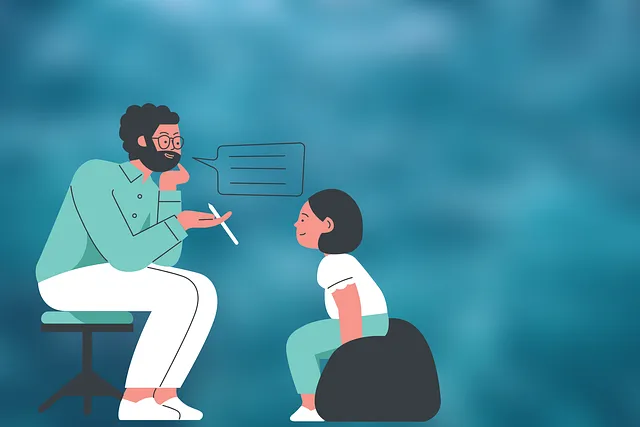Colorado Springs addresses community mental health gaps, especially for marginalized populations like veterans, the homeless, and domestic violence survivors. Specialized Trauma Support Services and Kaiser mental health classes focused on mindfulness meditation offer hope. Increasing accessibility to these services builds resilience, improves well-being, and fosters social cohesion. Effective programs tailor teachings to diverse needs, use engaging formats, and partner with local organizations for cultural sensitivity. Strategic planning, diverse delivery methods, and community feedback ensure success. Measuring outcomes through attendance, satisfaction, and stigma reduction reveals impact.
In Colorado Springs, identifying gaps in mental health support is crucial. This article explores how community outreach programs, such as tailored Kaiser mental health classes, can bridge these voids. We delve into strategic partnerships with local organizations and effective implementation techniques to maximize engagement. By focusing on content adaptation and measuring success through outcome evaluation, these initiatives promise transformative impacts on the psychological well-being of Colorado Springs residents. Key emphasis lies in the design and delivery of accessible Kaiser mental health classes tailored to community needs.
- Understanding Community Needs: Identifying Gaps in Mental Health Support in Colorado Springs
- Designing Effective Kaiser Mental Health Classes: Tailoring Content for Maximum Impact
- Building Partnerships: Collaborating with Local Organizations and Communities
- Implementing the Program: Strategies for Successful Delivery and Engagement
- Measuring Success and Evaluating Outcomes: Assessing the Effectiveness of Community Outreach
Understanding Community Needs: Identifying Gaps in Mental Health Support in Colorado Springs

In Colorado Springs, understanding community needs involves recognizing critical gaps in mental health support. The city’s diverse population faces unique challenges, with a significant portion struggling with undiagnosed and untreated mental health conditions. The absence of accessible resources, particularly for marginalized communities, has led to a pressing need for innovative solutions. For instance, the prevalence of trauma among veterans, individuals experiencing homelessness, and survivors of domestic violence demands specialized services like Trauma Support Services that cater to these specific needs.
One promising approach is leveraging programs that foster emotional healing processes, such as Kaiser mental health classes focusing on mindfulness meditation. These initiatives not only aim to improve individual well-being but also contribute to building a resilient community. By increasing awareness and accessibility of mental health services, Colorado Springs can create an environment where everyone has the opportunity to thrive, ensuring better overall health and social cohesion.
Designing Effective Kaiser Mental Health Classes: Tailoring Content for Maximum Impact

In designing effective Kaiser mental health classes for Colorado Springs communities, it’s crucial to tailor the content and approach to maximize impact. This involves understanding the unique needs and challenges faced by community members. By incorporating evidence-based practices such as Mindfulness Meditation, Social Skills Training, and Mental Wellness Coaching Programs Development, these classes can offer practical strategies for improving mental health and overall well-being.
For instance, tailoring sessions to address specific issues like stress management, communication skills, or coping mechanisms can resonate deeply with participants. Utilizing interactive activities, group discussions, and real-life case studies helps ensure that the content is not only informative but also relatable and actionable. This personalized approach fosters engagement, making it easier for individuals to integrate newfound knowledge into their daily lives, ultimately enhancing mental wellness within the community.
Building Partnerships: Collaborating with Local Organizations and Communities

Building strong partnerships is a cornerstone of successful community outreach programs, especially when focusing on mental health initiatives like those offered by Colorado Springs Kaiser. Collaborating with local organizations and communities allows for a more comprehensive understanding of unique cultural needs and barriers to access. By engaging with established entities, such as community centers, churches, and schools, the program can tailor its services and programming to be relevant and accessible.
For example, incorporating Healthcare Provider Cultural Competency Training ensures that all partners are equipped with the knowledge and skills to address diverse cultural backgrounds and perspectives. This is particularly beneficial when delivering Mind Over Matter Principles and Crisis Intervention Guidance to ensure every individual receives support that resonates with their personal experiences and beliefs. Such partnerships not only enhance program effectiveness but also foster a sense of trust, making it more likely for community members to engage in mental health services.
Implementing the Program: Strategies for Successful Delivery and Engagement

Implementing a community outreach program like the Colorado Springs Kaiser mental health classes requires strategic planning and execution. First, it’s crucial to understand the local community’s needs and tailor the program accordingly. Engaging with local leaders, healthcare providers, and community organizations can help identify target demographics and ensure the program resonates with those who will benefit most. For instance, offering mental health classes specifically designed for high-risk youth or seniors can have a profound impact on their well-being.
Once the program is designed, effective delivery strategies become paramount. Utilizing a combination of in-person sessions, virtual workshops, and interactive online platforms can enhance accessibility and engagement. Incorporating diverse teaching methods, such as presentations, group discussions, and hands-on activities, caters to different learning styles and keeps participants interested. Moreover, integrating real-world examples and success stories from the community can make the program more relatable and impactful. Ensuring continuous feedback loops allows for adjustments based on participant needs, fostering a sense of ownership and active involvement in their mental wellness journey.
Measuring Success and Evaluating Outcomes: Assessing the Effectiveness of Community Outreach

Measuring success is a crucial step in evaluating the effectiveness of community outreach programs like those offered by Colorado Springs Kaiser mental health classes. To assess their impact, organizers should define clear goals and outcomes aligned with the program’s objectives. Metrics such as attendance rates, participant satisfaction scores, and changes in knowledge or attitudes regarding mental illness can provide valuable insights. For instance, tracking the number of individuals who complete the classes and follow-up surveys that gauge self-esteem improvement or depression prevention strategies can offer tangible evidence of success.
Additionally, qualitative feedback from participants through focus groups or interviews can uncover deeper impacts beyond quantitative data. These insights may reveal how the programs contribute to mental illness stigma reduction efforts by fostering more inclusive communities. By combining these approaches, organizers can comprehensively evaluate the outcomes of their outreach initiatives, ensuring they achieve their intended purpose and positively influence the well-being of community members in Colorado Springs.
Community outreach programs, like those involving Colorado Springs Kaiser mental health classes, can significantly address gaps in support within local communities. By understanding community needs, designing effective class content, building strategic partnerships, and implementing successful delivery strategies, organizations like Kaiser can foster positive change. Measuring the program’s success through outcome evaluation ensures that these initiatives are not only reaching but also aiding those who need it most. This comprehensive approach to mental health outreach holds the potential to revolutionize access to care in Colorado Springs and similar communities.





